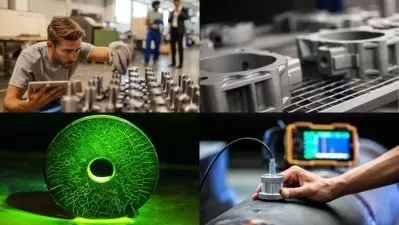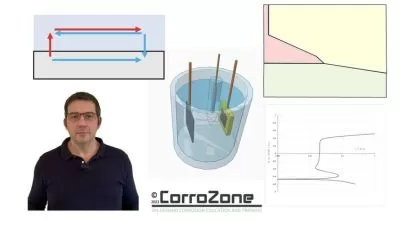Multicomponent Distillation for Chemical Process Engineers
Chemical Engineering University,Rahib Gasimov
2:06:49
Description
Learn How to Design Distillation Columns Considering Real-case Multicomponent Feed Scenarios
What You'll Learn?
- Principles of Distillation Process
- Principles of Multicomponent Distillation
- How to Model Distillation of Multicomponent Feed
- Model Rectifying and Stripping Sections of Distillation Column
- Understand and Interpret "Number of Stages", "Reflux Ratio", "Tray Efficiency"
- How to Implement Fenske Equation for Minimum Number of Stages
- How to Implement Underwood Equations for Reflux Ratio
- How to Implement Gilliland Correlations for Actual Number of Stages
- Understand Design Considerations for Distillation Column
Who is this for?
More details
DescriptionDistillation refers to the selective boiling and subsequent condensation of a component in a liquid mixture. It is a separation technique that can be used to either increase the concentration of a particular component in the mixture or to obtain (almost) pure components from the mixture.
The problem of determining the stage and reflux requirements for multicomponent distillations is much more complex than for binary mixtures.
Multicomponent Distillation for Chemical Process Engineers training course will be the best fit in Udemy aiming to fill the needs for multicomponent distillation column design. The course is specifically designed to cover the principles of multicomponent distillation, distillation column design with Fenske-Underwood-Gilliland Method and column sizing by going over the following essential topics:
Distillation Process Overview
Distillation Column and Supporting Equipment
Distillation Principles
Operating Challenges in Distillation Process
Distillation Column Design
Implementation of Fenske and Underwood Equations for Number of Stages and Reflux Ratio Calculations
Implementation of Gilliland Correlations for Actual Number of Stages Calculation
Column Sizing Considerations, such as, Tray Efficiency, Operating Pressure, Height/Diameter Calculations, Process Control, etc.
Above points have clearly been discussed during the course. This training can be really helpful for students, engineers and even teachers aiming to deliver the essentials of multicomponent distillation from engineering point of view. By spending only 2 hours, you can really understand the whole topic and further do practical calculations.
Course instructor does also provide the service of answering questions for all course participants for free.
Who this course is for:
- Engineers working with Distillation Columns
- Process Engineers
- Chemical Engineers
- Chemical Process Engineering Graduates or Undergraduates
- Any Discipline Engineers aiming to learn essentials of distillation column sizing
Distillation refers to the selective boiling and subsequent condensation of a component in a liquid mixture. It is a separation technique that can be used to either increase the concentration of a particular component in the mixture or to obtain (almost) pure components from the mixture.
The problem of determining the stage and reflux requirements for multicomponent distillations is much more complex than for binary mixtures.
Multicomponent Distillation for Chemical Process Engineers training course will be the best fit in Udemy aiming to fill the needs for multicomponent distillation column design. The course is specifically designed to cover the principles of multicomponent distillation, distillation column design with Fenske-Underwood-Gilliland Method and column sizing by going over the following essential topics:
Distillation Process Overview
Distillation Column and Supporting Equipment
Distillation Principles
Operating Challenges in Distillation Process
Distillation Column Design
Implementation of Fenske and Underwood Equations for Number of Stages and Reflux Ratio Calculations
Implementation of Gilliland Correlations for Actual Number of Stages Calculation
Column Sizing Considerations, such as, Tray Efficiency, Operating Pressure, Height/Diameter Calculations, Process Control, etc.
Above points have clearly been discussed during the course. This training can be really helpful for students, engineers and even teachers aiming to deliver the essentials of multicomponent distillation from engineering point of view. By spending only 2 hours, you can really understand the whole topic and further do practical calculations.
Course instructor does also provide the service of answering questions for all course participants for free.
Who this course is for:
- Engineers working with Distillation Columns
- Process Engineers
- Chemical Engineers
- Chemical Process Engineering Graduates or Undergraduates
- Any Discipline Engineers aiming to learn essentials of distillation column sizing
User Reviews
Rating
Chemical Engineering University
Instructor's CoursesRahib Gasimov
Instructor's Courses
Udemy
View courses Udemy- language english
- Training sessions 27
- duration 2:06:49
- Release Date 2023/05/17











